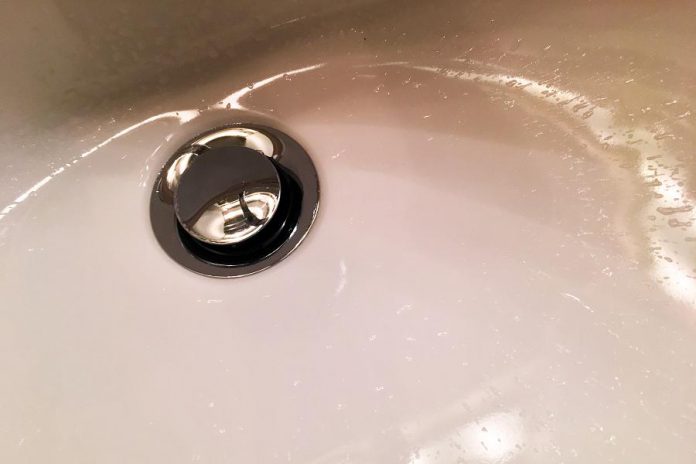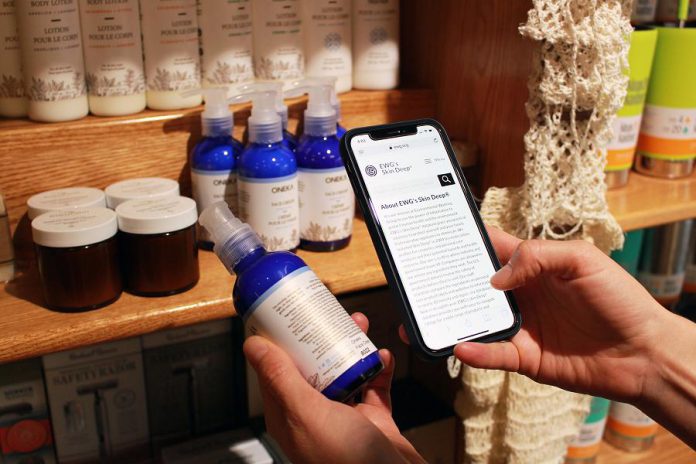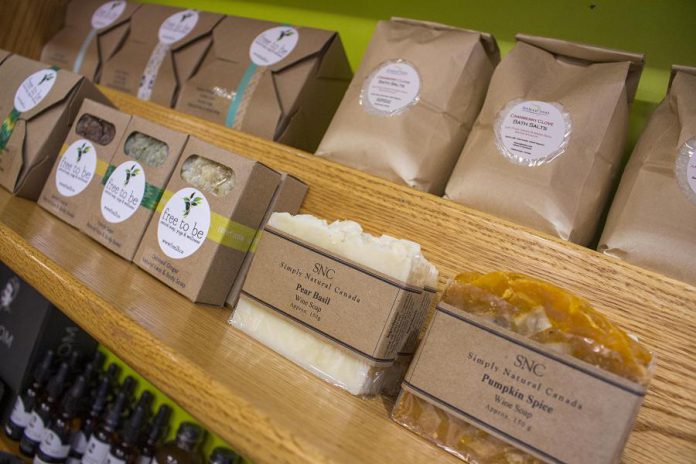
I narrowly averted a crisis the other night. My toilet was quite close to overflowing. I discovered a number of cotton swabs my toddler, Leif, had attempted to flush.
Eventually, I removed all of the cotton swabs and things flushed as they should. As I inspected the other drains within the bathroom (the sink, the bathtub), I thought about how many of us, myself included, may be unknowingly contributing to a bigger problem by flushing items that we shouldn’t be putting into our water system.
I usually tell Leif that “bathroom talk” belongs in the bathroom — but in this case, I feel like we need more public bathroom talk about what should and shouldn’t go down the drain.
Personal care products (PCPs) is a term used to include a wide range of products that we all use daily, most often in our bathrooms. PCPs include, but are not limited to, shampoos, cosmetics, cotton swabs, deodorants, wet wipes, and soaps.
While pharmaceuticals are technically not defined as a PCP, these are often included in the broader definition. For example, the Government of Canada refers to both PCPs and pharmaceuticals as any product used by individuals for personal health or cosmetic reasons.
Common sense isn’t always enough to guide our decisions about what we do and do not allow down the drain. Larger items that can cause clogging, like cotton swabs or tampons, are clearly not meant for the drain. Some items are even promoted as “flushable” when in reality they are not.

Wet wipes are one of these confusing products — they appear to fall into the same category as toilet paper, and many of them are labelled as flushable. Even flushable wipes, however, can wreak havoc on plumbing by causing clogs.
A clogged pipe or toilet is stressful, but a mess like that is quickly recognized and prompts action because its impact is felt immediately. When it comes to some other PCPs, the negative health and environment impacts such as degradation of water quality are not fully recognized in the moment, thus making it more difficult to know if they should or shouldn’t go down the drain.
“Our daily personal care routine involves up to a dozen or more products, from shampoos to concealers, that contain chemicals that can adversely affect our health,” says Muhannad Malas, toxics program manager with Environmental Defence. “When washed down the drain, ingredients such as phthalates and siloxanes escape our wastewater filtration systems, spread through the beautiful waterways that surround us, and pose serious risks to fish and other aquatic animals.”
Part of the challenge of avoiding these PCPs is interpreting their ingredients. When determining if a PCP should or shouldn’t go down the drain, the product ingredient list is a helpful place to seek answers — but only if you know what to look for. When ingredient lists seem incomprehensible, it can be difficult to determine if a product I am buying or using may contain a harmful ingredient that should not escape into the waterway (or onto my skin for that matter).
To prevent the purchase or release of harmful ingredients, I trust a few handy resources to guide my decision making:
- The Toxic Ten Pocket Guide, offered as a printable wallet guide by Environmental Defence, provides a general overview of toxic chemicals (such as phthalates) to avoid in household products, including PCPs.
- The David Suzuki Foundation offers a Sustainable Shopper’s Guide to help you dive deeper into what you can avoid when purchasing or flushing cosmetics, such as sodium lauryl sulfate and cyclomethicone, which are both harmful to fish and other wildlife.
- If an online tool is more convenient, the Environmental Working Group (EWG) offers an extensive, searchable database of products. EWG has evaluated (and verified) thousands of products, solving much of the ingredient-reading struggle.
If you are ever unsure whether you should flush or wash something down the drain, aim for the wastebasket instead.
“Dispose of unused portions appropriately,” advised Kent Keeling, chief environmental officer with the City of Peterborough. “The Household Hazardous Waste Depot accepts cleaners, chemicals and pharmaceuticals, and many pharmacies will accept unused medications.”
“Pharmaceuticals, personal care products, and micro plastics are not things that wastewater treatment plants were designed to remove. The wastewater industry likes to use the phrase ‘the three Ps — pee, poo, and toilet paper’. These are the only things that should be flushed down the toilet.”

I will be telling Leif to only flush the three Ps, and I will be mindful to prevent potentially harmful PCPs from going down the drain and into waterways.
Purchasing all-natural products can help to ensure that no harmful chemicals are entering the bathroom in the first place. The GreenUP Store offers a number of all-natural, chemical-free PCPs that you can swap out in your daily routine.
Find out more about the GreenUP Store by visiting greenup.on.ca/greenup-store/.


























